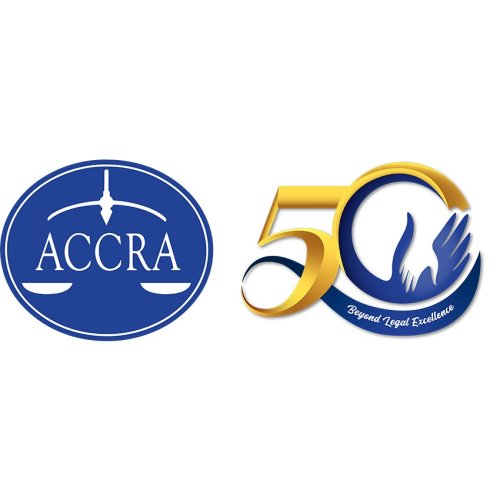Best Employment Benefits & Executive Compensation Lawyers in Davao City
Share your needs with us, get contacted by law firms.
Free. Takes 2 min.
List of the best lawyers in Davao City, Philippines
Philippines Employment Benefits & Executive Compensation Legal Questions answered by Lawyers
Browse our 1 legal question about Employment Benefits & Executive Compensation in Philippines and read the lawyer answers, or ask your own questions for free.
- The company I previously worked with said that I should submit my notarized quitclaim document before they give me my final paycheck. I witnessed that they did this to the previous employees too. Is that right?
- I am about to claim my final paycheck, and they emailed me a quitclaim form and gave instructions that I should submit this before claiming my final paycheck. I reviewed the quitclaim, and I am uncomfortable submitting it before reviewing my final paycheck to ensure I am compensated correctly.
-
Lawyer answer by Recososa Law Firm
Hello:What you are experiencing is a very common concern among employees in the Philippines. Under the Labor Code, your employer has the obligation to release your final pay which normally includes unpaid wages, pro-rated 13th month pay, and any unused...
Read full answer
About Employment Benefits & Executive Compensation Law in Davao City, Philippines
Employment benefits and executive compensation law in Davao City, Philippines, is a specialized area of law that governs the financial and non-financial rewards provided to employees and executives. These benefits can include basic salary, bonuses, stock options, retirement benefits, health insurance, and other perks that are often negotiated as part of employment contracts. In the Philippines, these laws are designed to ensure fairness, transparency, and compliance with national labor standards, helping to create a balanced relationship between employers and employees.
Why You May Need a Lawyer
Legal assistance might be needed in several situations concerning employment benefits and executive compensation. Common scenarios include negotiating executive contracts, disputes over benefits entitlements, issues related to stock options, retirement and pension plans conflicts, compliance with local and national labor laws, or seeking clarity on the calculation of benefits. A knowledgeable lawyer can provide essential guidance and representation, helping you protect your interests and ensure fair treatment under the law.
Local Laws Overview
Davao City, like other regions in the Philippines, adheres to the national labor laws set forth by the Department of Labor and Employment (DOLE). Key regulations include the Labor Code of the Philippines, which outlines the legal framework for compensation, benefits, and workers’ rights. The laws dictate minimum wage guarantees, health and safety standards, the rights to negotiate collective bargaining agreements, and dispute resolution mechanisms. Employers must also comply with the provisions specific to executive compensation, especially those concerning tax implications and fair executive pay policies. Specific local ordinances in Davao City may further influence employment benefits based on regional economic considerations.
Frequently Asked Questions
What are the mandatory employment benefits under Philippine law?
Mandatory benefits include Social Security, PhilHealth, and Pag-IBIG Fund contributions. Employers must also comply with overtime pay, rest days, 13th-month pay, and service incentives.
Can an employer modify or withhold executive compensation?
Any modification or withholding must comply with the employment contract terms and the Labor Code. Employers typically cannot unilaterally change agreed terms without potential legal consequences.
How is the 13th-month pay calculated?
The 13th-month pay is equivalent to one-twelfth of an employee's total basic salary within a calendar year. It must be paid not later than December 24 annually.
What is the role of a lawyer in negotiating executive compensation packages?
A lawyer can ensure that all legal aspects are addressed, negotiating terms that are favorable and compliant with both local and national laws.
How can disputes over benefits be resolved?
Disputes can be resolved through negotiation, mediation, or if necessary, legal action in labor courts. A lawyer can guide and represent you through the process.
What are stock options, and are they commonly offered in the Philippines?
Stock options give employees the right to buy company stocks at a predetermined price. While not as common as in other countries, it can be offered to high-level executives or through multinational companies.
Are there tax implications for receiving executive compensation?
Yes, executive compensation packages may have tax implications. It's crucial to understand applicable taxes to avoid infractions. Consultation with a tax expert or lawyer is advisable.
What is covered under "fringe benefits"?
Fringe benefits may include company vehicles, housing, educational assistance, or club memberships. They are often part of the total compensation package.
Can employment benefits be reduced due to economic downturns?
Alterations based on economic conditions must be mutually agreed upon by both parties and compliant with current labor laws and contract stipulations.
Is it mandatory to provide retirement benefits?
Retirement benefits are not mandated by law for all employees, but many companies offer them as part of their corporate policies or through specific voluntary agreements.
Additional Resources
For further assistance, individuals can contact the Department of Labor and Employment (DOLE) for information on compliance and workers' rights. The Bureau of Internal Revenue (BIR) can provide guidance on taxation issues related to compensation. Local law firms and legal aid societies in Davao City can also offer direct counseling and representation.
Next Steps
If you're seeking legal assistance regarding employment benefits and executive compensation, your first step should be to gather all relevant documents, such as employment contracts and any written correspondence with your employer. Next, consider consulting with a lawyer who specializes in labor law. Many law firms in Davao City can offer initial consultations to help you understand your situation better. Lastly, if your rights are being compromised, it might be necessary to file a complaint with the appropriate labor authorities or pursue legal action to protect your interests.
Lawzana helps you find the best lawyers and law firms in Davao City through a curated and pre-screened list of qualified legal professionals. Our platform offers rankings and detailed profiles of attorneys and law firms, allowing you to compare based on practice areas, including Employment Benefits & Executive Compensation, experience, and client feedback.
Each profile includes a description of the firm's areas of practice, client reviews, team members and partners, year of establishment, spoken languages, office locations, contact information, social media presence, and any published articles or resources. Most firms on our platform speak English and are experienced in both local and international legal matters.
Get a quote from top-rated law firms in Davao City, Philippines — quickly, securely, and without unnecessary hassle.
Disclaimer:
The information provided on this page is for general informational purposes only and does not constitute legal advice. While we strive to ensure the accuracy and relevance of the content, legal information may change over time, and interpretations of the law can vary. You should always consult with a qualified legal professional for advice specific to your situation.
We disclaim all liability for actions taken or not taken based on the content of this page. If you believe any information is incorrect or outdated, please contact us, and we will review and update it where appropriate.










